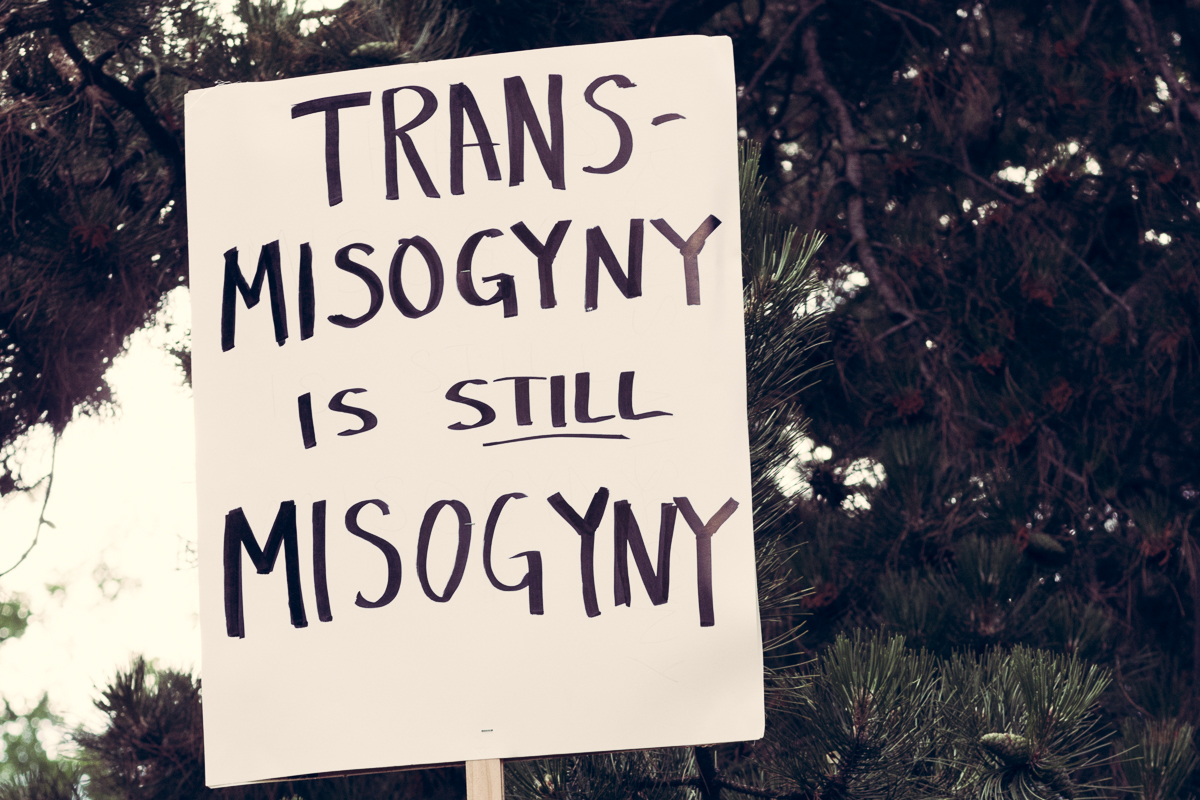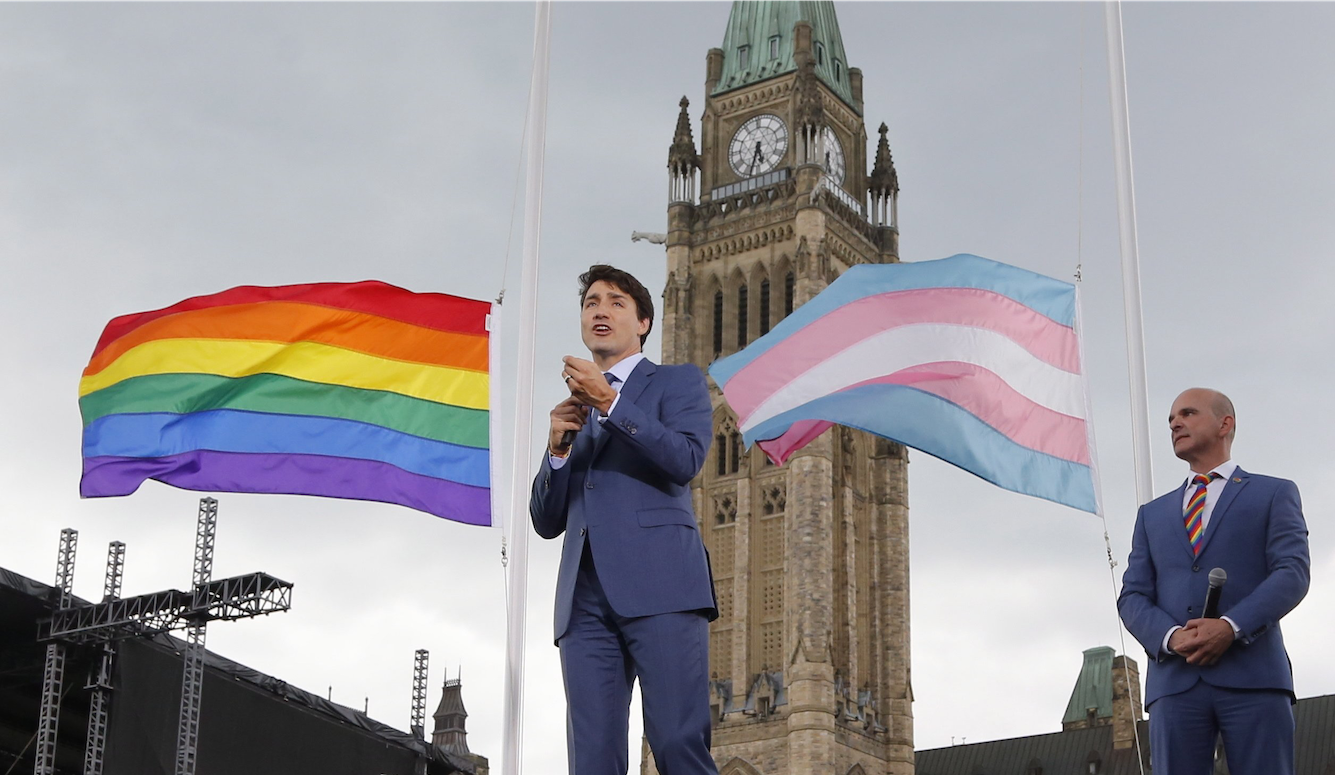Activism
Silencing Women in the Name of Trans Activism
Since I made my story public, Goldstein has tried to suggest that he is the true victim, and that he was bullied into apologizing to me (“a decision I now retract”).

It all began with a warm and friendly email from an arts producer who runs a regular London-based project called the Truth to Power Café (TTP). Founder Jeremy Goldstein had seen my writing, and figured I might be a worthy performer.
“[The show] includes live and spontaneous testimony from participants rising up in the name of free speech and political activism,” he told me. “During the course of the show, I invite participants to respond to the question, ‘Who has power over you and what do you want to say to them?’ before a live audience. This year, I’ve worked with over 100 participants in four countries including U.K., Australia, Netherlands and Croatia.”
I hesitated before accepting. Performance art isn’t really my thing. And I already do a number of events as part of my feminist activism, so I need to be careful about how I allocate my remaining time (especially when, as in this case, I’m not being paid). But the free speech and truth-to-power elements appealed to me, so I agreed to take part.
Goldstein seemed pleased to have me. Two weeks before the event, he sent me a gushing email and asked me to advertise my attendance on social media. My name was added to the program, and I was told to arrive at the venue early to have publicity photos taken.
Then, out of the blue, Goldstein emailed to say how “sorry” he was, but few tickets had been sold, so he needed to “rethink” the program. On my hasty first scan of the ambiguously worded message, I concluded that the event had simply been cancelled.
Imagine my surprise when, the next day, I saw the event advertised on Twitter with my name neatly substituted by another—that of supposed free-speech champion and LGBT rights activist, Peter Tatchell, well known for having supported the legal right of a religious baker to refuse to decorate a cake with the slogan “Support gay marriage.”
“In a free society, neither they nor anyone else should be compelled to facilitate a political idea that they oppose,” argued Tatchell. He is right—although many progressives seem quite ready to forget that principle when a feminist such as myself refuses to accept the idea that a penis is a female body part, or declines to mouth Orwellian mantras that completely equate trans women with biological females.
But I’m getting ahead of myself. First let me provide some background, to help readers make sense of what was about to happen between me and Jeremy Goldstein.
Over the past 15 years, I’ve been the object of a systematic harassment campaign organized by radicalized trans activists and their ideological allies. It began in 2004, following the publication of a column I’d written about the case of Kimberly Nixon—a male-to-female trans woman who targeted a rape relief clinic in Vancouver, Canada with a lengthy litigation campaign after the clinic’s leaders had rebuffed Nixon’s request to act as a counsellor to rape survivors. Nixon was considered unsuitable to counsel victims of male violence because, as was plainly explained, Nixon did not share the same life experiences as women born and raised as girls.
Eventually, after several costly hearings, the Supreme Court of Canada ruled that the group, Vancouver Rape Relief (VRR), had not discriminated against Nixon, and that the group had the freedom to self-organize as it saw fit. The court case almost bankrupted VRR. And when I wrote my column in the left-leaning Guardian, only weeks after final judgment has been handed down, I was still angry about it—as the tenor of my writing made clear.
Even though this was the pre-Twitter era, all hell broke loose, especially on lesbian message boards, which tended to be dominated by transgender women who presented themselves as lesbians, and often used these forums to seek out sexual partners.
These boards became the central battleground in the online campaign against me. Within days, the Guardian was inundated with emails and phone calls. The staff member who deals with reader concerns dedicated his weekly column to the issue, concluding that my article had served to “abuse an already abused minority that the Guardian might have been expected to protect.”
Seen by the lights of 2018, such a reaction might seem predictable. But these were still early days in this culture war. In England, where I live, many of the first salvoes had been fired by an organization called Press for Change (PFC), which had been founded by two activists—Stephen Whittle and Christine Burns—who identified as “transsexual” and campaigned for an end to legal discrimination. By the time I’d published my Guardian column in 2004, Whittle and Burns already had been debating me on this issue. But now they were being pushed aside by more militant activists who’d swapped out “sex” for “gender,” and gave PFC a good kicking for even engaging with me at all.

In 2008, I was shortlisted by the British gay rights charity, Stonewall, for a journalism award. But once the trans activist Inquisition heard of this, Stonewall came under pressure to de-nominate me. To their credit, the organizers refused to capitulate. And on gala’s eve, a crowd of 200 protesters duly turned up to bleat, “Bindel the Bigot.”
I didn’t win that night. And my detractors, believing that they’d swayed the vote (which perhaps they did), gained confidence. I was subsequently “de-platformed” (avant la lettre) by the National Union of Students (NUS). Whenever I was invited to speak—whether about rape, trafficking, child sex abuse or domestic homicide—I often was greeted by a group of students screaming at me about my alleged “bigotry.”
But back to 2018 and the Truth to Power debacle.
Having learned that the event was still on, I emailed Goldstein (who, as an aside, is depicted in publicity shots wearing wings and a t-shirt with the slogan “Only the Brave”). What followed was a darkly hilarious and profoundly deceptive exchange, in which he gamely tried to pretend that I had not actually been bounced for the sake of his own political convenience. I eventually got fed up with the dissembling and emailed TTP’s partner, Index on Censorship (IoC), whose mission is to “publish work by censored writers and artists, promote debate, and monitor threats to free speech.” Its CEO, Jodie Ginsberg, told me she was “appalled” at what had transpired. She pieced together the facts of the matter, which apparently were that Goldstein had caved in to pressure from two queer-identified performers on the same event program, and publicly withdrew IoC’s sponsorship.
On reflection, I should have known when I accepted the invitation from Goldstein that trouble would follow. One of the scheduled performers was Reece Lyons, whose poem, “I am a Woman, and I have a penis,” has been viewed 2.5-million times on YouTube. Following my ouster, Reece declared that “the concept of me and Julie Bindel even sharing the same space is, at the very least, debilitating to my mental welfare and to other LGBT members of the audience/line-up.” (Somewhat appropriately, the two groups of trans allies that bullied Goldstein into cancelling my appearance made the triumphant announcement of my erasure via Tumblr, the same medium commonly used to promote cross-sex hormone treatment for young butch lesbians.)
“[Bindel’s] work, together with many other anti-trans activists—or TERFs [a term of abuse that denotes ‘Trans-Exclusive Radical Feminists’]—has had impact on the well-being of our communities and friends, but also on systemic discrimination of trans folk in the U.K.,” reads the statement, echoing the now-common claim that even the most respectable forms of debate on this subject should be equated with violence and persecution. “The current daily violent climate against transgender communities—and indeed public and governmental consultations on if trans people should even be ‘allowed’ basic rights—is abhorrent and goes in line with her work and ethos.”
The venue for the TPP event had been the Roundhouse in Camden, North London. This is a performing-arts theatre focused on new and emerging talent. Two days after IoC disowned the event, the scrupulously woke Roundhouse also pulled out, and issued a statement declaring that “the safety of our young people, audiences, staff and volunteers is always our biggest priority. We pride ourselves on being an inclusive venue and would always encourage people to use creativity to enable a dialogue. However, due to the changing nature of the event, we feel we can no longer guarantee it is a safe space, particularly for our young artists. Therefore, we have spoken with the event organiser to inform them we will be cancelling next week’s Truth To Power Café shows.”
I had been pleased when IoC withdrew from the event, because it represented a strong, principled stand against arbitrary censorship. But when Roundhouse also pulled out, I had the opposite reaction—in part because of the false insinuation that somehow I was the reason the space was no longer “safe.”
Such “safe space” language is meant to suggest that feminists such as myself represent a sort of terroristic threat to trans people—even when we aren’t there. The opposite would be closer to the truth: Feminists now are routinely beaten up, slandered, fired from their jobs and de-platformed if they offer even the mildest caveat in regard to the demands of transgender extremists. Just this week, in fact, a female lecturer at Liverpool John Moores University was mobbed, with potentially career-ending ramifications, after raising concerns about male-bodied individuals being sent to female prisons.
Since I made my story public, Goldstein has tried to suggest that he is the true victim, and that he was bullied into apologizing to me (“a decision I now retract”). His public statement is full of applause lines aimed at the trans community, complete with suggestions that the real beneficiaries of this contretemps will be “right wing Twitter trolls.” Unfortunately for him, the evidence of what actually happened is all in the emails he sent me, which still sit in my inbox.
The ostensible mission of Truth to Power is to give people “a chance to express your true self, become the person you’ve always wanted to be, and say what you’ve always wanted to say.”
Well here I am, being true to myself. I am what I was yesterday, and what I will be tomorrow: a tireless, radical feminist who refuses to accept that biological men are identical to women. As for the thing I’ve “always wanted to say,” I will now direct it to Goldstein and all the other ostentatiously progressive men in my world: Silencing feminists who are calling out your hypocrisy stinks—especially when you have the gall to do so under the banner of “free speech.”






